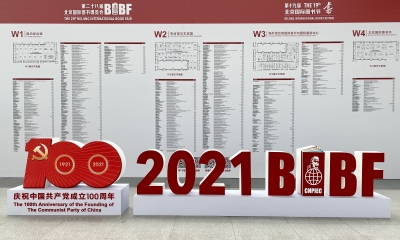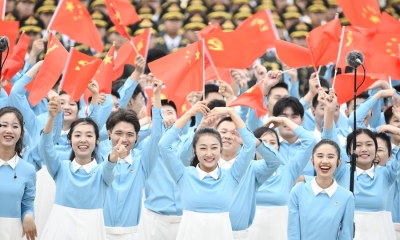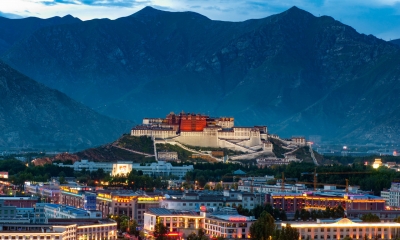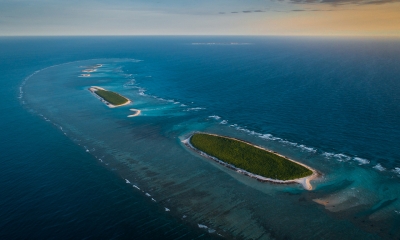Solidarity: The Greatest Weapon Against Covid-19

While the prospect of China-US cooperation appears increasingly fanciful with each passing day, China remains one of the strongest proponents for international cooperation and solidarity in the face of the Covid-19.
Covid-19 is the “defining crisis of our time,” said WHO Director-General Tedros Adhanom Ghebreyresus, at a Member State Pandemic Briefing on July 9.
The coronavirus pandemic has left “no country untouched” and has “humbled all of us,” he said.
While some countries have achieved remarkable success in controlling the virus, for most of the world, the virus is not under control — “it is getting worse,” Tedros warned.
The World Health Organization reported a record increase in global coronavirus cases on July 12, with the total rising by 230,370 in 24 hours.
According to the most recent data, more than 13 million cases have been confirmed, and more than 576,000 lives have been lost.
The WHO chief underscored the importance of international cooperation, warning “we cannot defeat this pandemic as a divided world.”
“This once-in-a-century pandemic has hammered home a critical lesson,” Tedros explained. “When it comes to health, our destinies are intertwined.”
“The greatest threat we face now is not the virus itself. Rather, it is the lack of leadership and solidarity at the global and national levels.”
A divided world
Notably, Dr Tedros’ warning on the dangers of a divided world lacking leadership followed the news that President Donald Trump had formally moved to withdraw the US from the WHO.
The decision to remove the US from the WHO in the midst of a global pandemic is shocking but not surprising. Since entering the Oval Office, Trump has shown no appetite for international cooperation — shredding one multilateral landmark agreement after another.
The Covid-19 pandemic, rather than prompting a course correction, has only exacerbated President Trump’s “us” and “them” mentality.
In April, the US was accused of “modern piracy” after intercepting a shipment of 200,000 Germany-bound masks on an airstrip in Bangkok.
As the BBC reported, “The US company that makes the masks, 3M, was prohibited from exporting its medical products to other countries under a Korean-War-era law invoked by President Donald Trump.”
In June, the US sparked global outrage after buying almost the entire world supply of one of the only drugs proven effective against Covid-19.
Dr. Ohid Yaqub, Senior Lecturer at the Science Policy Research Unit at the University of Sussex, said that in addition to leaving the rest of the world without access to the drug, the hoarding of the critical medicine has also concerned scientists who fear that the US will not collaborate with other nations in response to the pandemic.
“The buying-up of Remdesivir is disappointing news, not necessarily because of the shortages it implies for other countries, but because it so clearly signals an unwillingness to co-operate with other countries,” Dr. Yaqub said in a statement.
Indeed, many fear that the Trump’s unabashed “America First” view of world affairs will impede access to any future US-developed vaccine, leading to much unnecessary suffering and death.
A European ambassador to the US said he and his colleagues remain “hopeful” that the United States will ensure fair global vaccine access. “But we are a bit skeptical at the moment,” he said, “because we don’t see the forthcoming attitude that we’ve seen in the past.”
US undermines foundation for cooperation
The Trump administration, seemingly not content with merely obstructing a united multilateral effort to combat Covid-19, has incessantly sought to sow wider divisions by politicizing the virus.
In March, the Group of Seven nations (G7) were forced to abandon releasing a joint statement on “the need for joint efforts to halt the spread Covid-19” after US Secretary of State Mike Pompeo refused to sign the communiqué unless the virus was identified as the “Wuhan virus.”
For months, the World Health Organization has been forced to defend itself over Trump administration claims that it is too “China-centric” and had not a good enough job at the beginning in warning the world of the dangers of the virus. Equally, much of the WHO’s limited resources have been squandered in having to warn about the dangers of politicizing the virus, of misinformation, and of a lack of leadership and solidarity.
Clearly, the politicizing of the virus by officials in Washington has not only reduced America’s capacity to respond to the virus, it has also impeded global efforts to effectively combat the virus together.
Trump has also repeatedly blamed China for the unenviable position the US finds itself in and has revived xenophobic terms — including “Chinese Virus” and “Kung Flu” — since his first in-person election rally in Tulsa, Oklahoma, on June 20.
As the US edges closer to the presidential elections and both candidates attempt to position themselves as the “strongest” on China, a majority of political commentators expect such discourse to continue, if not increase, over the coming months.
While the prospect of China-US cooperation appears increasingly fanciful with each passing day, China remains one of the strongest proponents for international cooperation and solidarity in the face of the Covid-19.
China’s cooperation pledge
Speaking at the online 73rd World Health Assembly, Chinese President Xi Jinping pledged to strengthen international cooperation and outlined a raft of measures which Beijing plans to take to help the world combat the virus.
Xi announced that China will provide $2 billion over two years to help bolster Covid-19 response as well as rebuild economic and social development in affected countries — especially developing countries.
Xi also pledged that once China has developed a Covid-19 vaccine, it will be made “a global public good.”
“Solidarity and cooperation are our most powerful weapons for defeating the virus,” added Xi.
To promote multilateral cooperation, China has held extraordinary online meetings with EU, Africa, Arabian countries, Belt and Road countries to safeguard solidarity for fighting against Covid-19. Also, President Xi has exchanged ideas of strengthening cooperation with many state leaders on bilateral occasions.
In addition to these efforts on diplomatic level, China adheres to cooperation with other states on vaccines research. Currently, Chinese researchers are working on eight of the world’s seventeen potential Covid-19 vaccines. And one of them has been approved for clinical trials in China. According to Ministry of Science and Technology of China, Chinese scientists have been working on vaccines research and development with colleagues from US, UK, Canada and Germany.
 Facebook
Facebook
 Twitter
Twitter
 Linkedin
Linkedin
 Google +
Google +







